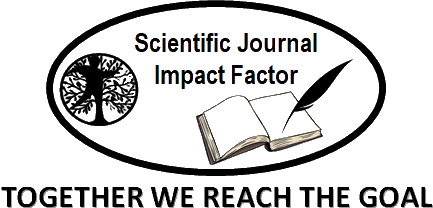Biotechnological Advancements in Seed Quality Enhancement
Abstract: Seed quality directly affects crop yields, germination rates, and plant vigor, so it is essential to agricultural productivity and food security. Conventional techniques for improving seed quality, like hybridization, selective breeding, and seed treatment, have advanced agriculture, but have drawbacks in terms of accuracy, efficiency, and resistance to environmental stresses. Recent advances in biotechnology have transformed seed research by providing novel strategies to improve crop resilience and seed quality. This review thoroughly examines a number of biotechnological approaches that have greatly enhanced seed trait selection, disease resistance, and stress tolerance, such as genetic engineering, marker-assisted selection (MAS), and technologies (genomics, proteomics, and metabolomics). Furthermore, emerging technologies such as genome editing (CRISPR-Cas9), artificial intelligence (AI) applications in predictive breeding, nanotechnology for seed treatment, and synthetic biology for tailored crop development are examined for their transformative potential in agricultural sustainability. While these technologies offer promising solutions, challenges such as regulatory frameworks, ethical concerns, public acceptance, and accessibility in developing regions remain substantial barriers to widespread adoption. Leveraging biotechnological discoveries for future agricultural development will require addressing these issues through interdisciplinary research, regulatory changes, and technology improvements. In order to ensure global food security, this review attempts to give a thorough grasp of the most recent developments in seed quality enhancement as well as the future course of biotechnological applications.
Keywords: Genetic engineering, Marker-assisted selection (MAS), Biotechnology, Nanotechnology, Stress tolerance, Biofortification, RNA interference (RNAi)
Author: Nikita Kumari, Vaidehi Sharma, Aditya Mishra and Deepak Rao
doi: https://doie.org/10.10346/AE.2025348134
Reference: Borrill, P., Harrington, S. A., Uauy, C. (2019). Applying the latest advances in genomics and phenomics for trait discovery in polyploid wheat. The Plant Journal, 97(1), 56-72. Chen, K., Wang, Y., Zhang, R., Zhang, H., & Gao, C. (2019). CRISPR/Cas genome editing and precision plant breeding in agriculture. Annual Review of Plant Biology, 70, 667-697. Collard, B. C., & Mackill, D. J. (2008). Marker-assisted selection: An approach for precision plant breeding in the twenty-first century. Philosophical Transactions of the Royal Society B: Biological Sciences, 363(1491), 557-572. Conner, A. J., Glare, T. R., & Nap, J. P. (2003). The release of genetically modified crops into the environment. The Plant Journal, 33(1), 19-46. Dwivedi, S. L., Scheben, A., Edwards, D., Spillane, C., & Ortiz, R. (2017). Breeding climate-resilient crops: Opportunities and challenges. Advances in Agronomy, 148, 1-47. Garg, M., Sharma, N., Sharma, S., Kapoor, P., Kumar, A., Chunduri, V., & Arora, P. (2018). Biofortified crops generated by breeding, agronomy, and transgenic approaches are improving lives of millions of people around the world. Frontiers in Nutrition, 5, 12. Holme, I. B., Wendt, T., & Holm, P. B. (2013). Intragenesis and cisgenesis as alternatives to transgenic crop development. Plant Biotechnology Journal, 11(4), 395-407. Hossain, M. S., Persicke, M., & Kalinowski, J. (2017). Genetic and metabolic engineering in seed quality improvement. Biotechnology Journal, 12(7), 1700081. Jaganathan, D., Ramasamy, K., Sellamuthu, G., Jayabalan, S., & Venkataraman, G. (2018). CRISPR for crop improvement: An update review. Frontiers in Plant Science, 9, 985. Kole, C., Muthamilarasan, M., Henry, R., Edwards, D., Sharma, R., & Abberton, M. (2015). Application of genomics-assisted breeding for generation of climate resilient crops: Progress and prospects. Frontiers in Plant Science, 6, 563. Li, J., Li, H., Zhang, L., Zhang, S., Wang, X., & Xu, J. (2022). Applications of nanotechnology in seed science: Prospects and challenges. Journal of Agricultural and Food Chemistry, 70(12), 3562- 3575. Mittler, R. (2006). Abiotic stress, the field environment and stress combination. Trends in Plant Science, 11(1), 15-19. Papanikolaou, S., Pantazis, S., & Tsaftaris, A. (2021). Artificial intelligence in plant breeding and seed quality enhancement: Current status and future prospects. Computers and Electronics in Agriculture, 187, 106305. Ray, D. K., Mueller, N. D., West, P. C., & Foley, J. A. (2013). Yield trends are insufficient to double global crop production by 2050. PLoS ONE, 8(6), e66428. Ricroch, A., Clairand, P., & Harwood, W. (2017). Use of CRISPR systems in plant genome editing: Toward new opportunities in agriculture. Emerging Topics in Life Sciences, 1(2), 169-182. Schmidt, S. M., & Belisle, M. (2019). From plant breeding innovations to genome editing: Regulatory challenges in the EU. Plant Cell Reports, 38(5), 825-833. Tester, M., & Langridge, P. (2010). Breeding technologies to increase crop production in a changing world. Science, 327(5967), 818-822. Varshney, R. K., Terauchi, R., & McCouch, S. R. (2014). Harvesting the promising fruits of genomics: Applying genome sequencing technologies to crop breeding. PLoS Biology, 12(6), e1001883. Wang, W., Mauleon, R., Hu, Z., Chebotarov, D., Tai, S., Wu, Z., ... & Alexandrov, N. (2018). Genomic variation in 3,010 diverse accessions of Asian cultivated rice. Nature, 557(7703), 43-49. Zhao, C., Zhang, Y., Du, J., Guo, X., Wen, W., Gu, S., ... & Fan, J. (2019). Advances in seed priming to enhance stress tolerance of crops. Plant Physiology and Biochemistry, 147, 303-311.
PDF




